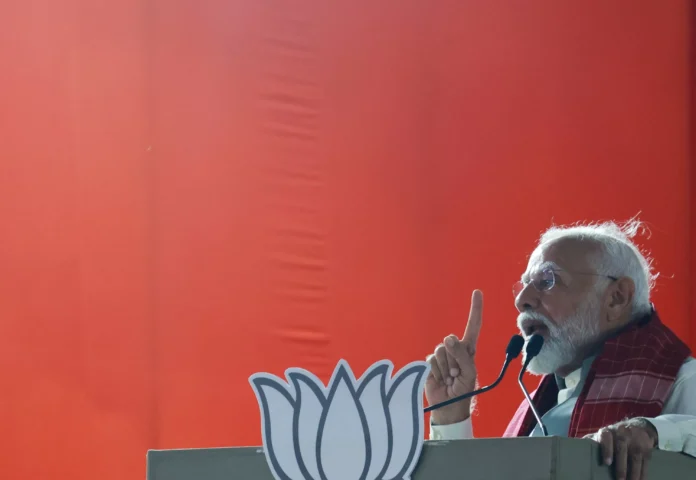Indian Prime Minister Narendra Modi has been known for his powerful and impactful speeches, often inspiring the nation with his vision for a developed and inclusive India. However, his recent statement about the country’s Muslim minority has sparked controversy and accusations of hate speech.
During a rally in the state of West Bengal, Modi referred to the Muslim community as “infiltrators” and accused them of threatening the security and culture of the nation. This statement has been deemed as divisive and inflammatory by many, especially in light of the ongoing protests against the controversial Citizenship Amendment Act (CAA) which has been criticized for being discriminatory towards Muslims.
The use of the term “infiltrators” to describe a particular community is not only derogatory but also goes against the principles of a secular and democratic nation. It not only creates a sense of fear and mistrust towards the Muslim minority but also undermines their contributions and sacrifices towards the development of the country.
This is not the first time that Modi has made such controversial remarks about the Muslim community. In the past, he has been accused of making similar divisive statements, including calling for the “revenge” against those who protest against the CAA. Such rhetoric not only fuels communal tensions but also goes against the values of unity and harmony that India stands for.
The Prime Minister’s remarks have been met with strong criticism from opposition parties, civil society groups, and even some members of his own party. They have condemned his language and urged him to refrain from using such polarizing terms that have the potential to incite violence and hatred towards a particular community.
In response to the backlash, the Prime Minister’s office released a statement clarifying that Modi’s remarks were not directed towards the entire Muslim community but only towards those who have illegally entered the country. However, this explanation has not satisfied the critics who believe that such statements only serve to further demonize and marginalize the already persecuted Muslim minority.
The timing of Modi’s statement is also significant, as it comes amidst widespread protests against the CAA and the proposed National Register of Citizens (NRC) which many believe will target Muslims and strip them of their citizenship. The government’s narrative of “infiltrators” and “outsiders” has been used to justify the need for these controversial laws, which have been met with resistance and criticism from various sections of society.
The use of hate speech by a leader of Modi’s stature is not only unacceptable but also dangerous. It sets a precedent for the normalization of hate and bigotry, which can have grave consequences for the social fabric of the nation. It is the responsibility of a leader to promote unity and inclusivity, not division and discrimination.
India has always prided itself on its diversity and pluralism, where people of different religions, cultures, and backgrounds live together in harmony. It is this diversity that makes our nation unique and strong. Therefore, it is imperative for leaders to uphold these values and refrain from using language that can potentially harm the unity and integrity of the country.
In conclusion, the Indian Prime Minister’s use of hate speech to describe the Muslim minority is a cause for concern and needs to be addressed. It is important for leaders to choose their words carefully and promote a message of unity and inclusivity, especially in times of social and political turmoil. Let us hope that in the future, our leaders will use their words to unite rather than divide the nation.


